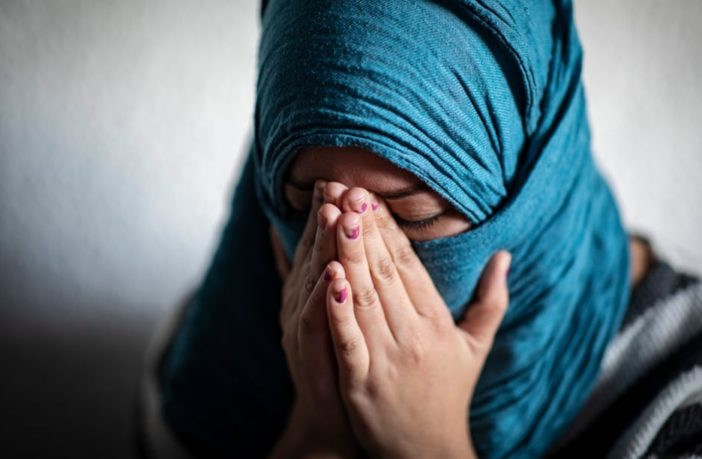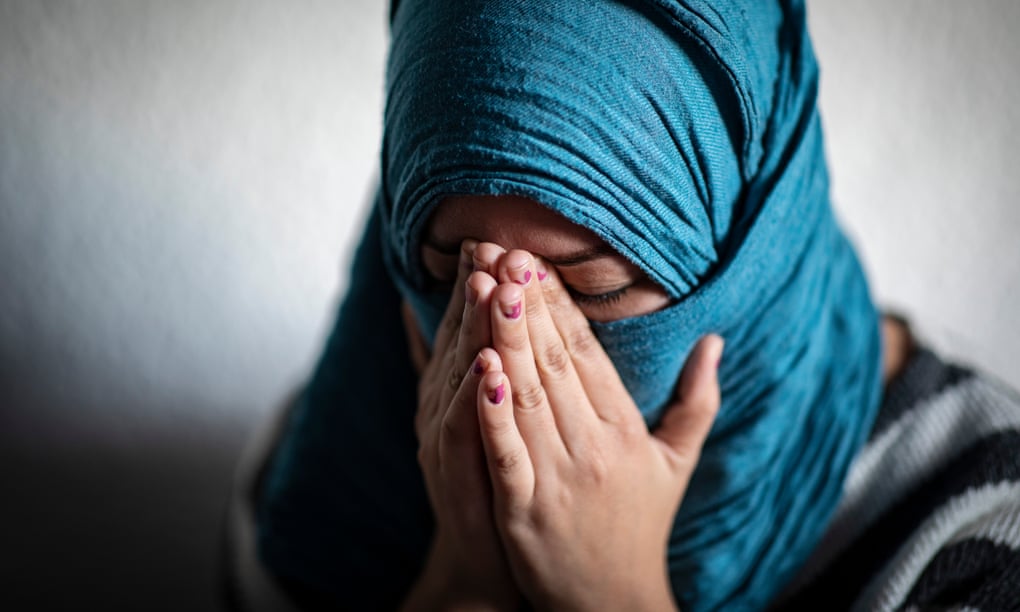The Guardian
Annie Kelly
Last April, Samira Ahmad* kissed her baby goodbye and boarded a bus, leaving her home in Morocco for the strawberry fields of southern Spain.
In her bag was her Spanish visa and a contract that promised €40 a day plus food and accommodation. In the three months she’d be away, she hoped the pain of being separated from her family would be softened by the money she’d be sending back to them – a fortune compared to what she’d be able to earn at home.
A year on, and Ahmad’s life is in ruins. She is destitute, divorced and for the past 10 months has been living in hiding, surviving on handouts with nine other Moroccan women who – like her – claim they faced human trafficking, sexual assault and exploitation on the farm where they were hired to work. She says her biggest mistake – other than coming to Spain – was going to the authorities.
Over the coming weeks an estimated 20,000 Moroccan women will arrive in Spain to help bring in this year’s strawberry harvest. The women make up a large percentage of the seasonal workforce in Andalucía, employed under a seasonal worker visa scheme that has been operated by the Spanish and Moroccan governments since 2001. They will help to cultivate and harvest 400,000 tonnes of strawberries expected to be exported from the region this year to supermarkets in the UK, France and Germany. Spain is by far the largest exporter of strawberries in Europe, and this booming €580m export industry is now so important to the fragile Spanish economy that it has been dubbed the country’s “red gold”.
Over the past few years, reports of widespread sexual and physical abuse and exploitation of Moroccan seasonal workers have surfaced in the local and international media.

Both governments have downplayed the allegations, denying that the problem is widespread. Although numerous allegations of abuse and rape were reported in the media, last year the Moroccan ministry of employment, the body responsible for recruiting and issuing visas to migrant workers, denied any formal complaints had been made.
Ahmad said she had heard rumours of what happened to women who went to Spain before she left her home. “But I ignored them,” she said. “I didn’t think that such stories could be true in a rich country like this.”
Yet she and the nine other Moroccan women who travelled to Spain on seasonal visas last year told the Observer that they had experienced serious and sustained sexual violence and labour exploitation on the farm where they were working.
They claimed they were forced to live in cramped and dirty shipping containers, with hundreds of female workers sharing a few showers and faulty toilets.
During the day they were racially abused and forced to work for 12-hour shifts without pay. They were denied food and water and penalised for taking toilet breaks or not working hard enough.
“The farm was very far away from the nearest town, we were totally isolated,” says Samira. “We didn’t speak Spanish and were desperate to send money home to our children. We had no power at all. The other women working on the farm who had been to Spain before said that it was always harder for new recruits but that we would get used to it.” The women also alleged that they were sexually assaulted and harassed; some said they were raped and others pressured into having sex in exchange for food and water. They said that some women were also ordered to work as prostitutes for local men who waited outside the farm in their cars every night.
Aicha Jaber*, who worked on the same farm as Ahmad, was pregnant when she arrived in Spain last April. “I saw a job advert looking for women between 20 and 45 to work for a few months in the field,” she says. “I asked if my husband could get a job too but I was told they wanted women. Now I realise it was because they knew they could exploit us easily.”
After about six weeks on the farm, Jaber, Ahmad and eight other women went to Guardia Civil police officers to report that they had been exploited, raped and sexually assaulted.
“We thought that when we went to the police we would get justice,” says Ahmad. “That we would get our wages, and the harassment stopped. But instead we have been abandoned and left to starve.”
They are not the first Moroccan migrant workers to report cases of exploitation and sexual violence in Spain’s agricultural industry. A BuzzFeed Germany investigation last year led to several women coming forward with allegations and at least one other case of labour exploitation is going through the courts in Andalucía.
Yet 10 months after they went to the local police, Ahmad and Jaber and all of the other women have yet to be interviewed by the Guardia Civil or the national police. Belén Luján Sáez, a Spanish attorney who is representing the group, said the national police had a legal obligation to investigate the women’s claims but had refused to activate the national anti-trafficking protocols that would have offered them support and assistance while their claims were investigated.
Saez also claims that the provincial courts in Andalucía have been obstructive, failing to launch a proper investigation, not allowing the women enough time to travel to a courtroom in Huelva to give evidence in front of a judge last June and then leaving them in legal limbo for a further eight months. The charges of rape and sexual assault have also been downgraded to sexual harassment, with the courts citing a lack of evidence.
The court in Huelva disputed these claims, saying that that women failed to attend two court dates – one last June and one in February – and blaming their lawyers for the lack of progress in the case.
The national police said that it would not interview the women as potential human trafficking victims because they had already filed charges in a provincial court.
“All we are asking is that these women’s reports of labour trafficking, rape and sexual assault are taken seriously and investigated properly,” said Luján Sáez, who is representing the women through her law firm Luján and Lerma Abogados.
“Our clients should have been offered protection and support as potential victims of trafficking as soon as they reported this abuse. They have been treated with disdain and negligence by our judicial system,” she said.

Most say they have also been divorced by their husbands and disowned by their parents in Morocco after their families learnt of the allegations of rape and sexual assault and were sent messages saying that they were working in prostitutes in Spain. Unable to return home and unwilling to leave Spain before they get their case resolved, they say clearing their name is the only way they will see their children again. “We knew we couldn’t go home because we still hadn’t been paid and we had to prove that the things that we had told the police were true,” said Aicha, whose baby is now nine months old. Like all the other women, she suffers from panic attacks and depression and is too scared to leave the apartment.
“Since we went to the police our life has been unbearable,” she said. “My baby has never even met her father. Sometimes I think it would have been better to have endured the abuse and to be back home with my family now.”
This year the Spanish government has made efforts to mitigate the criticism of the treatment of Moroccan women in its export fruit industry. It has announced it will increase controls and inspections of farms and will also use cultural mediators – other Moroccan women – to try and resolve disputes and report any incidents of mistreatment.
The courts say that the women’s case are still being considered and last week the government granted the women temporary work visas on humanitarian grounds, which will allow them to find work to support themselves. Yet Saez says that all efforts to get the government to take swift action to resolve their case continues to be thwarted.
“They were given the permits on humanitarian grounds not because they are being taken seriously as potential victims of human trafficking and rape,” said Saez. “We will continue to pursue this through the courts, even if we have to go to the European court to get this heard.” Ahmad and Jaber said they were losing hope that they would get the justice they say they deserve and said that their experiences in Spain’s strawberry fields had changed them for ever. “I didn’t have much before, but everything I had has now gone,” said Ahmad. “I say to the women coming now, please don’t come. If bad things happen nobody will help you. Turn around and go home to your families.”
Additional reporting by Ofelia de Pablo
*Names have been changed.








